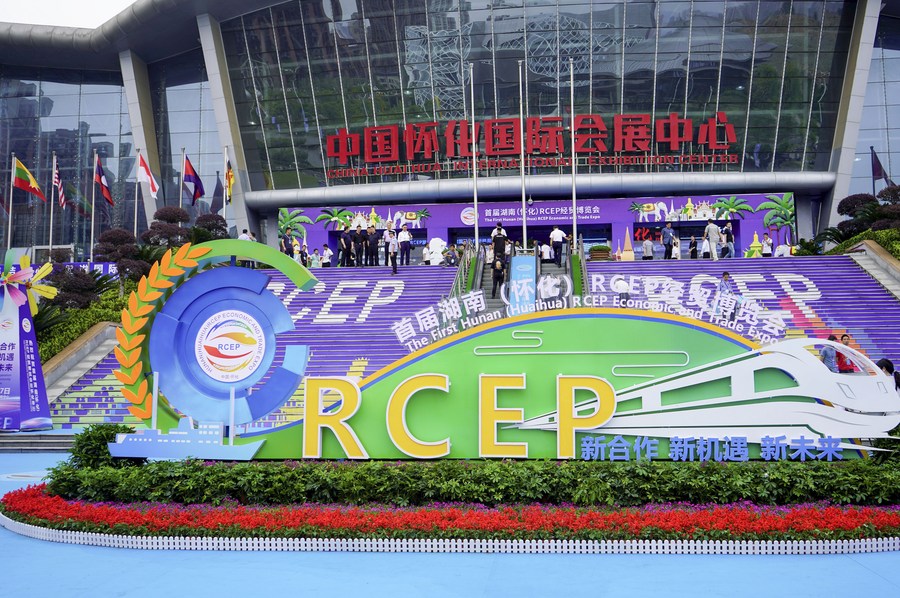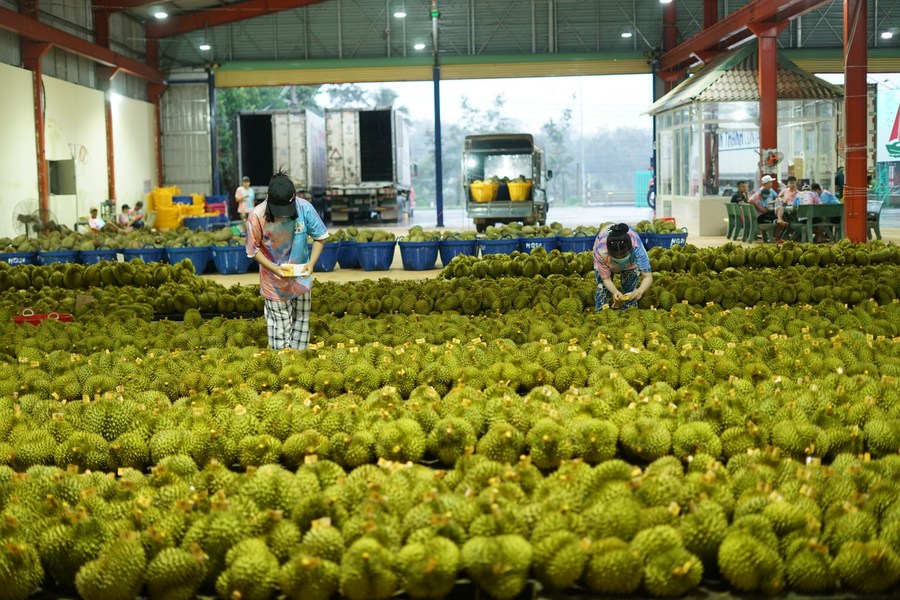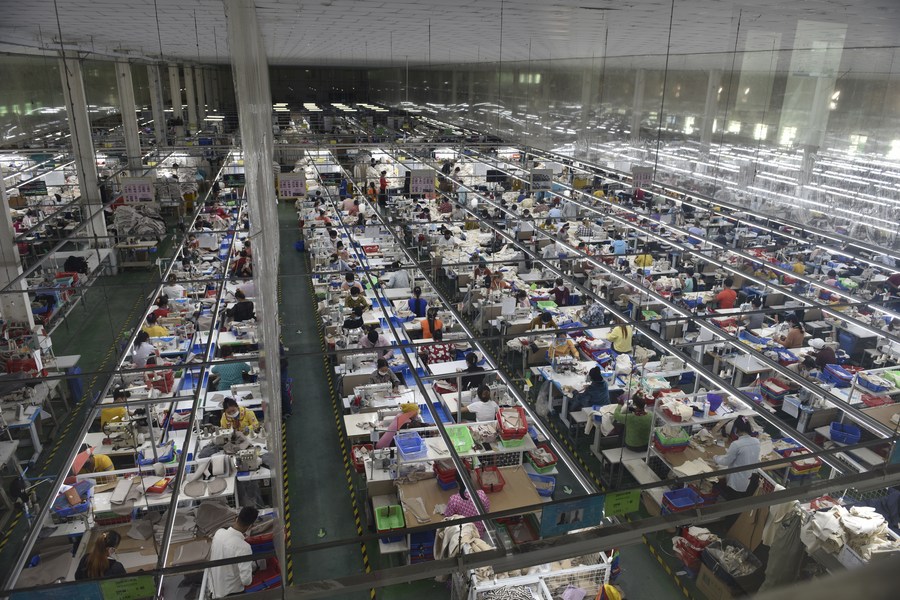RCEP catalyst for cross-border trade, economic integration in Asia-Pacific: Cambodian official, experts

This photo taken on May 5, 2023 shows the venue for the First Hunan (Huaihua) RCEP Economic and Trade Expo in Huaihua City, central China's Hunan Province. (Xinhua/Yu Chunsheng)
Under the RCEP, the total number of zero-tariff products in trade in goods exceeds 92 percent, while the opening up of at least 65 percent of services sectors, will certainly help stimulate cross-border trade, investment and flows of people, thus expediting economic and trade integration in the Asia-Pacific region.
PHNOM PENH, Nov. 22 (Xinhua) -- The Regional Comprehensive Economic Partnership (RCEP) agreement, which entered into force last year, is a catalyst for cross-border trade and economic integration in the Asia-Pacific region, a Cambodian official and local experts said on Tuesday.
The RCEP comprises 15 countries, including 10 countries of the Association of Southeast Asian Nations (ASEAN), as well as China, Japan, South Korea, Australia and New Zealand.
Sok Siphana, a senior minister in charge of special mission, said the world's biggest free trade agreement is comprehensive, covering trade in goods and services, investment, economic and technical cooperation, dispute settlement, e-commerce, competition, and intellectual property rights, among others.
"The most obvious element of the RCEP is its ambitious reduction in tariff barriers," he said in a presentation delivered to Information Ministry officials.
"The total number of zero-tariff products in trade in goods exceeds 92 percent, while the opening up of at least 65 percent of services sectors, will certainly have the effect of stimulating more cross-border trade, investment and flows of people, thus expediting economic and trade integration in the Asia-Pacific region," he added.

Staff members label durians to be exported to China at a durian processing plant in Dak Lak province, Vietnam, on Sept. 15, 2023.(Xinhua/Hu Jiali)
For Cambodia, Siphana said the RCEP has provided bigger market access for the kingdom's products, particularly agricultural and industrial ones.
"Cambodia has received good trade preferences under the RCEP for their agricultural products, which include among others, cashew nuts, maize, coconut, fresh mango, banana, sweet potato, honey, turmeric powder, orange, papaya, passion fruit, garlic, guava, dragon fruit, and durian," he said.
As for industrial goods, he said Cambodia has received good trade preferences under the RCEP for products like bicycles, garments, footwear, electronic components, electrical cables, furniture, handbags, suitcases, electrical wires, sports equipment, processed resin, processed woodchips, white sugar, cane sugar, and rubber, among others.
He said the RCEP, along with bilateral free trade agreements, will help Cambodia achieve its ambitious goals of becoming an upper-middle-income country by 2030 and a high-income nation by 2050.
According to the Ministry of Commerce, Cambodia exported 5.81 billion U.S. dollars worth of products to other RCEP countries in the first nine months of 2023, up 23.6 percent from 4.7 billion dollars in the same period last year.

Garment workers make clothes at a factory in Phnom Penh, Cambodia on Dec. 17, 2021.(Xinhua/Wu Changwei)
Kin Phea, director-general of the International Relations Institute of Cambodia, said the RCEP has stabilized member countries' economies, especially in a time of global economic slowdown and uncertainties.
"The RCEP has huge potential to create tangible benefits for all of its members, and ASEAN will reap long-term benefits from this mega-trade pact by integrating further into regional and global supply chains," he told Xinhua. "It will help transform ASEAN into a new engine of economic growth in Asia."
Joseph Matthews, a senior professor at the BELTEI International University in Phnom Penh, said the RCEP has promoted multilateralism and free trade, providing mutually beneficial and win-win cooperation for all participating countries.
"This mega-trade pact has become a catalyst for greater trade and economic integration in the Asia-Pacific region, injecting vigorous momentum into building a global community with a shared future for mankind," he told Xinhua.
- China-Vietnam freight trains facilitate cross-border trade
- Hainan to start independent customs operations by end of 2025
- Guest Opinion: Three years on, RCEP testifies to power of economic integration for shared prosperity
- China hails trade, investment achievements of RCEP at three-year mark
- Interview: Expo to inject fresh impetus into China-ASEAN economic, trade ties: Cambodian scholar


